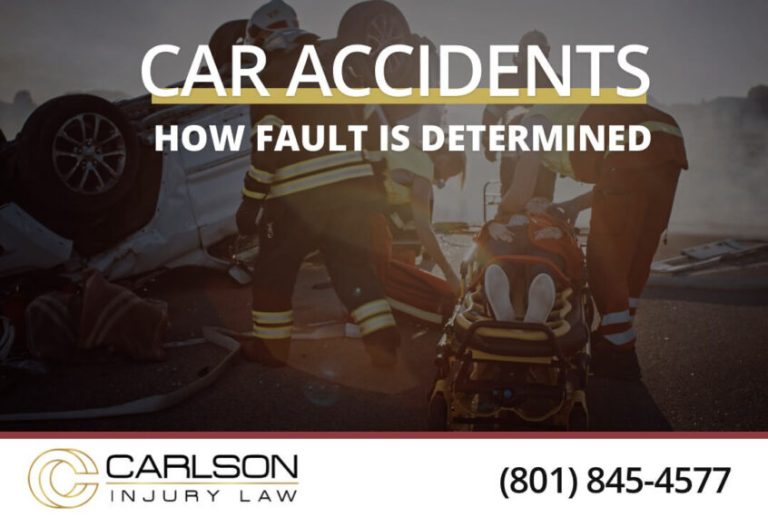Introduction
Auto accidents can be life-altering events, and when they occur, determining fault is a crucial aspect of the legal process. In Utah, the legal principle of comparative fault plays a significant role in shaping the outcome of auto accident cases. This article explores the intricacies of comparative fault in Utah and highlights the importance of seeking guidance from a qualified Utah auto accident lawyer.
I. What is Comparative Fault?
Comparative fault, also known as comparative negligence, is a legal doctrine applied in personal injury cases, including auto accidents. Unlike some states that follow a contributory negligence system, Utah adheres to a modified comparative fault rule.
Under Utah’s modified comparative fault system, an injured party can still recover damages even if they are partially at fault for the accident. However, there’s a critical threshold – the injured party must be less than 50% responsible for the accident to pursue compensation.
II. Determining Fault in Utah Auto Accidents
Utah uses a comparative fault system to allocate responsibility for an accident among the parties involved. The court or insurance adjusters will assess the degree of fault for each party and assign a percentage. This percentage is then used to determine the proportion of damages each party is responsible for.
III. The Role of Comparative Fault in Damages
In auto accident cases in Utah, damages are awarded based on the proportion of fault assigned to each party. For instance, if a driver is found to be 30% at fault for an accident, they can only recover 70% of the total damages. Understanding how comparative fault impacts damages is crucial for both plaintiffs and defendants in building their legal strategies.
IV. Importance of Legal Representation: Utah Auto Accident Lawyer
Navigating the legal landscape of auto accident cases in Utah can be complex, especially when comparative fault is in play. Hiring an experienced Utah auto accident lawyer is essential for several reasons:
- Legal Expertise: A skilled lawyer understands the nuances of Utah’s comparative fault laws and can leverage this knowledge to build a strong case.
- Negotiation Skills: Insurance companies often attempt to minimize payouts by emphasizing the injured party’s contribution to the accident. A lawyer skilled in negotiation can counter these arguments effectively.
- Evidence Gathering: Establishing the degree of fault requires a thorough investigation. A lawyer can help gather and present compelling evidence to support their client’s case.
- Litigation Support: In the event that a fair settlement cannot be reached, a lawyer can represent their client in court and advocate for their rights.
Conclusion
In Utah auto accident cases, understanding and navigating the intricacies of comparative fault are crucial for a successful legal outcome. Hiring a qualified Utah auto accident lawyer can make a significant difference in securing fair compensation. If you find yourself involved in an auto accident in Utah, seeking legal representation promptly is a prudent step to protect your rights and interests.



